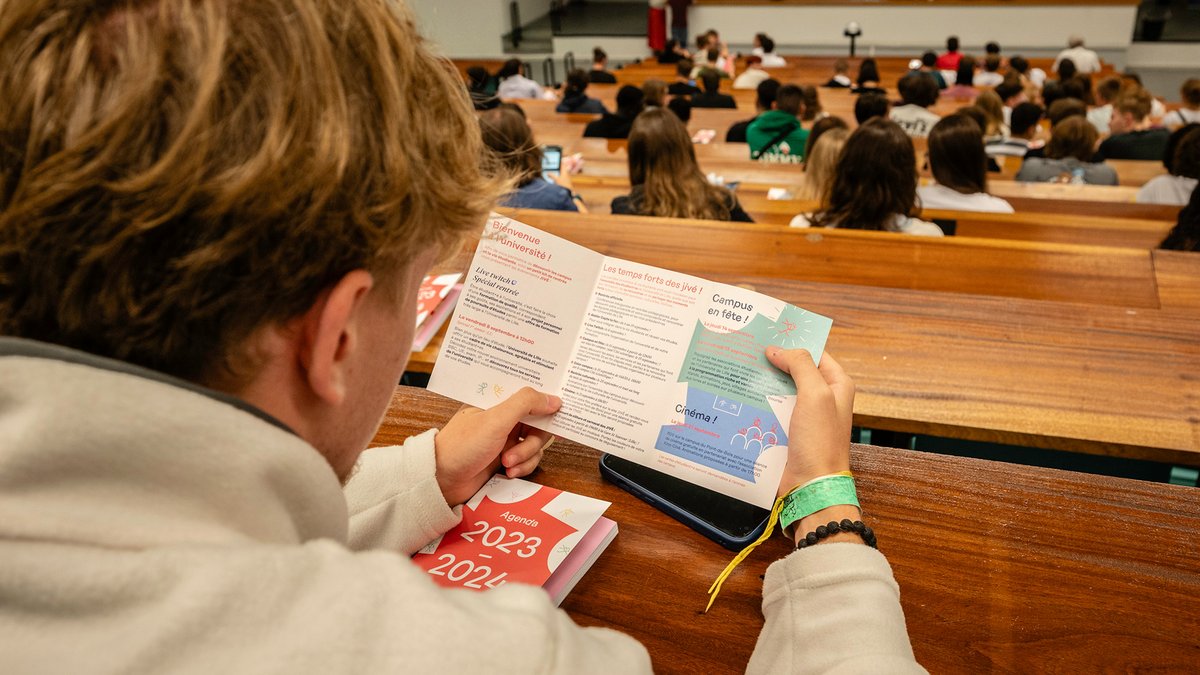12.6 million euros for undergraduates
Categories : Formation Offre de formation
paru le 09-12-2023 (16:24) - Updated on 10-29-2024 (15:57)

The University of Lille is the winner of the 3rd round of the Ministry of Higher Education and Research’s (MESR) call for projects ‘Excellence in all its forms’. The aim of this call for projects is to support higher education and research institutions with ambitious, site-wide transformation projects in implementing their own strategies, based on their own regional dynamics and specific needs.
Entitled ‘Licence inclusive au bénéfice des étudiants-es de l’Université de Lille’ (Inclusive licence for University of Lille students; LIBEL’UL), the university’s project focuses on undergaduates. Nearly 34,000 students are enrolled in the university’s licence courses, and the university must offer them academic, social and societal excellence, giving everyone the means to achieve their own level of excellence in the public interest and for the common good. With a budget of €12.6 million, the project is organised into 4 main areas:
Supporting undergraduates’ individual university careers
Throughout the licence course, students encounter social, psychological and academic difficulties that require the implementation of support measures. Tutoring associated with the development of self-positioning, mentoring by peers or professionals, stress and emotion management schemes, easier access to information and university services, as well as regular meetings with teaching staff or guidance counsellors, will enable us to provide our students with better support and to better and more quickly identify those who need help in order to help them flourish and succeed.
Integrating students into groups
The aim is to draw on the creativity of students who are further along in their studies and that of associations approved by the university to improve the welcome given to new arrivals, so that they can quickly get to grips with the living and study areas and tools they need, and form relationships with other students on their course, on their campus and in the wider metropolitan area. The aim is also to equip spaces within the university to make them more conducive to the exchanging of ideas and innovative teaching practices.
Encouraging and recognising student initiatives and experiences
By adopting the service learning,a teaching concept that combines academic learning, practical experience and service to the community – in this case the university – the university aims to enable students to participate in the development of campus life and the improvement of living, study and working conditions. Drawing on the knowledge and skills acquired during their studies, they will acquire other competencies, in particular soft skills, which, when certified, will help them to integrate more effectively into society and the world of work.
Educating for transition-related challenges and regional issues
The issue of transitions was selected by the university in its Initiative d’Excellence project, a label that has enabled the development of master’s-level research and learning of excellence on these subjects. Building on this expertise, the aim is to strengthen the licence course on these issues by confronting students with complex, authentic situations that will make them enlightened participants in tomorrow’s world. This dynamic, developed from undergraduate level and centred around the university’s values with regard to transitions, will meet the expectations now strongly expressed by students, and help to strengthen the influence and enhance the appeal of the Lille site.